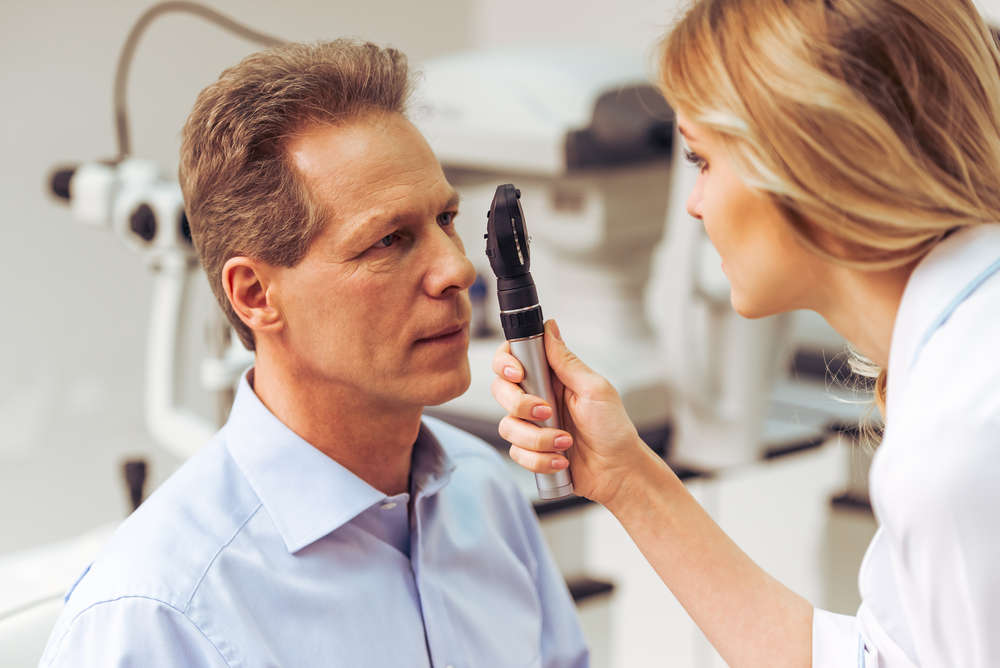Specialized Testing for Glaucoma Suspects: Identifying High-Risk Individuals

Glaucoma is a complex and potentially sight-threatening eye condition that affects the optic nerve, the vital structure responsible for transmitting visual information from the eye to the brain. This progressive disease can lead to irreversible vision loss if left untreated. Characterized by increased intraocular pressure (IOP), glaucoma damages the optic nerve, causing a gradual loss of peripheral vision and, if untreated, eventual blindness.
The early stages of glaucoma often go unnoticed, as the loss of peripheral vision is typically slow and subtle. As the disease progresses, it can lead to tunnel vision and, in advanced cases, complete blindness. Timely detection and appropriate treatment are crucial in managing glaucoma and preserving your vision.
Who is at Risk for Developing Glaucoma?
Certain individuals are at a higher risk of developing glaucoma than others. Understanding these risk factors can help you and your eye care provider take proactive steps to monitor your eye health and catch the condition early. Some of the key risk factors for glaucoma include:
Age: The risk of developing glaucoma increases significantly with age, particularly after the age of 60.
Family history: If you have a close relative with glaucoma, you are at a much higher risk of developing the condition yourself.
Ethnicity: Certain ethnic groups, such as African Americans and Hispanics, are at a greater risk of developing glaucoma.
Medical conditions: Conditions like diabetes, high blood pressure, and heart disease can increase your risk of glaucoma.
Eye injuries or surgery: Trauma to the eye or previous eye surgeries can also contribute to the development of glaucoma.
If you fall into one or more of these high-risk categories, it is essential to undergo regular eye examinations and specialized testing to detect glaucoma in its earliest stages.
The Importance of Regular Glaucoma Screenings
Regular glaucoma screenings are crucial for early detection and prevention of vision loss. These comprehensive eye exams can help your optometrist to identify any signs of glaucoma or other eye conditions before they progress and cause irreversible damage. During a glaucoma screening, your optometrist will perform a series of tests to assess the health of your eyes and measure various factors that can indicate the presence of glaucoma.
Specialized Testing for Glaucoma Suspects
If your optometrist suspects you may be at risk for glaucoma, they will likely recommend a series of specialized tests to confirm the diagnosis and assess the extent of the condition. These diagnostic tests can provide valuable insights into the health of your eyes and help guide the development of an effective treatment plan. Some of the most common tests used in the evaluation of glaucoma include:
Tonometry is a crucial diagnostic tool for glaucoma, as it measures the pressure inside your eye (intraocular pressure or IOP). Elevated IOP is a primary risk factor for glaucoma and can indicate the presence of the condition. Your optometrist will use a specialized instrument to gently measure the pressure within your eye, often using a small, numbing eye drop to ensure your comfort during the process.
During an ophthalmoscopic examination, your optometrist will use a specialized instrument to closely examine the optic nerve at the back of your eye. This test allows them to assess the appearance and health of the optic nerve, which can provide valuable clues about the presence and progression of glaucoma.
Perimetry is a test that measures your peripheral vision, as well as your central vision. This evaluation can help detect any blind spots or areas of vision loss, which are common indicators of glaucoma. During the test, you will be asked to focus your gaze on a central point while your provider uses a specialized instrument to map the boundaries of your visual field.
Pachymetry is a non-invasive test that measures the thickness of your cornea, the clear front part of your eye. Corneal thickness can be a factor in determining your risk of glaucoma, as thinner corneas may lead to inaccurate IOP readings and an increased risk of the condition.
By combining the results of these specialized tests, your doctor can gain a comprehensive understanding of your eye health and develop an appropriate treatment plan to manage your glaucoma or reduce your risk of developing the condition.
The Benefits of Early Glaucoma Detection
Early detection and treatment of glaucoma are crucial in preventing irreversible vision loss and preserving your sight. When caught in its earliest stages, glaucoma can often be effectively managed through the use of eye drops, oral medications, or even minimally invasive surgical procedures. These interventions can help lower intraocular pressure, protect the optic nerve, and slow the progression of the disease, allowing you to maintain your vision for years to come.
By undergoing regular glaucoma screenings and specialized testing, you can take proactive steps to safeguard your eye health and catch the condition early, before it has the chance to cause lasting damage to your vision.
Schedule Your Eye Exam with St. Marys Family Eyecare Today
Glaucoma is a complex and potentially sight-threatening condition, but with early detection and proper management, you can take control of your eye health and preserve your vision for years to come. The key to managing glaucoma is early detection and intervention.
To schedule your comprehensive eye exam and discuss your risk of glaucoma, contact St. Marys Family Eyecare. We are dedicated to providing personalized, high-quality care to help you maintain optimal eye health and prevent vision loss. Visit our office in St. Marys, Ohio, or call (419) 800-0400 to book an appointment today.






